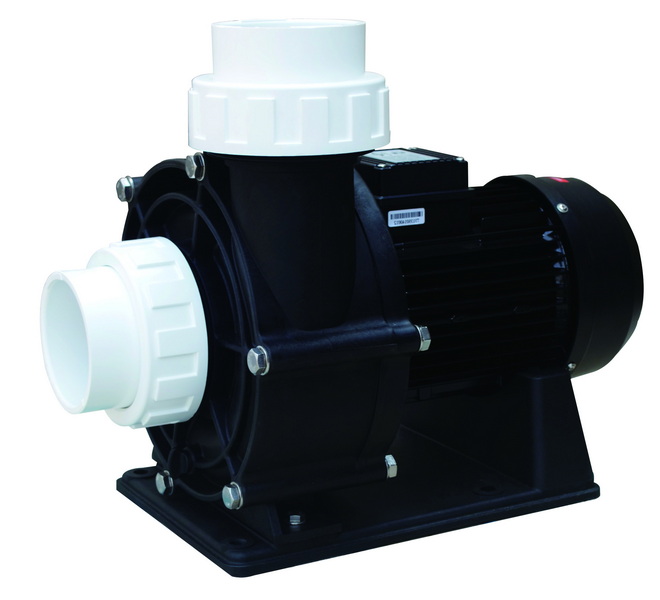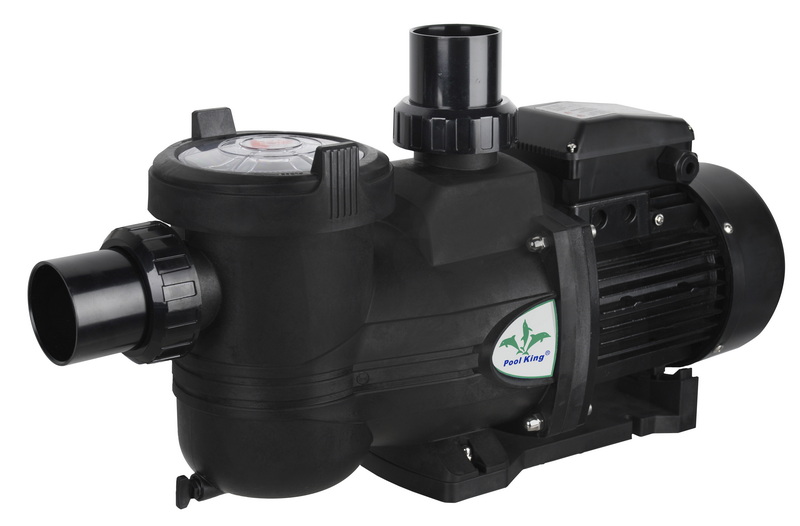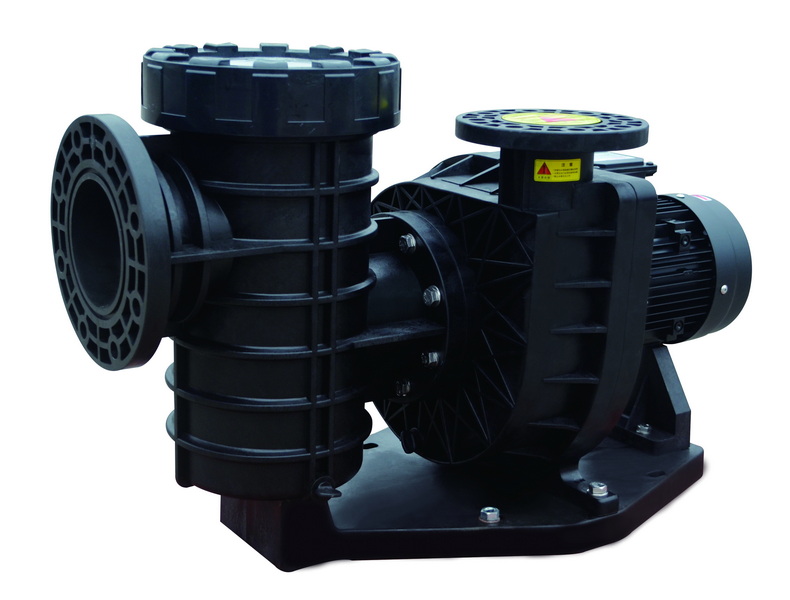Views: 222 Author: Tina Publish Time: 2025-07-24 Origin: Site








Content Menu
● Benefits of Running Your Pool Pump 24/7
>> 1. Superior Water Circulation
>> 2. Consistent Chemical Distribution
>> 3. Prevention of Algae and Bacteria Growth
>> 4. Temperature Regulation and Pool Heating Efficiency
>> 5. Freeze Protection in Cold Climates
>> 6. Extended Equipment Longevity with Proper Maintenance
● Potential Drawbacks of Running Your Pool Pump 24/7
>> 1. Increased Energy Consumption and Utility Costs
>> 3. Over-reliance on Filtration vs. Chemical Treatment
● How Long Should You Actually Run Your Pool Pump?
● Choosing the Right Pump for Continuous Operation
>> 3. Variable-Speed Pumps (Best Option)
● Importance of High-Quality Filters in Continuous Operation
● Maintenance Tips for 24/7 Pump and Filter Usage
● Frequently Asked Questions (FAQs)
>> 1. Can running my pool pump 24/7 cause premature wear?
>> 2. Is it cheaper to run the pump at night?
>> 3. How many hours a day should I run my pool pump if not 24/7?
>> 4. What is the best pump type for running continuously?
>> 5. How often should I backwash my filter?
Maintaining a clean and healthy swimming pool is a priority for most pool owners. One common question that arises is whether it is advisable or even safe to leave a pool pump running 24/7. The answer depends on several factors including energy consumption, pool size, climate, pool usage, and the efficiency of the equipment. This comprehensive article explores the different facets of continuous pool pump operation, its advantages and disadvantages, and practical advice to optimize performance and save costs.

Understanding whether to run your pool pump all day starts with understanding its fundamental role. The pool pump is the heart of the pool's circulation system. It pulls water from the pool, pushing it through the filtration system before returning it clean and balanced.
The pump's main job is to:
- Circulate water: Preventing stagnation and distributing heat and chemicals evenly.
- Push water through filters: Removing debris, dirt, algae spores, and bacteria.
- Assist chemical distribution: Ensuring sanitizers and chemicals mix uniformly in the pool water.
Without running the pump, even the cleaner water from good sanitation chemicals will become ineffective because the water isn't properly circulated and filtered.
One of the biggest factors for water clarity and hygiene is consistent water movement. The pump running continuously creates a steady flow that keeps all areas of the pool refreshed, reducing dead zones where contaminants gather.
- Better debris removal: Constant circulation helps transport leaves, bugs, and dirt towards the skimmer and filter.
- Reduced cloudy spots: Keeps suspended particles from settling.
- Improved swimmer experience: Uniform water movement prevents uncomfortable areas of stagnation.
Sanitizers like chlorine or bromine depend on being evenly dispersed to maintain appropriate levels throughout the pool.
- Without continuous circulation, chemicals settle unevenly, causing:
- Over-concentration in some areas, potentially irritating swimmers.
- Insufficient concentration in others, allowing bacteria or algae to thrive.
Constant pump operation ensures chemical agents mix thoroughly, providing consistent protection.
Algae and bacteria flourish in stagnant water, where sunlight and heat remain unchallenged by water movement.
- Running the pump 24/7 circulates water to:
- Limit nutrients settling in one spot.
- Keep filters removing spores continuously.
- Maintain an environment hostile to unwanted biological growth.
This reduces the frequency of costly chemical shocks or algaecide treatments.
Pools with heaters (gas, electric, or solar) benefit from continuous water movement.
- Stable Temperature: Keeps heat evenly distributed, avoiding cold patches.
- Heater Efficiency: Water flow ensures that the heater's energy is effectively transferred.
- During cooler climates or nighttime, continuous circulation prevents temperature dips and helps extend the swimming season.
If you live where temperatures drop below freezing in winter:
- Running the pump full-time prevents water from freezing in pipes.
- Moving water resists ice formation inside plumbing and the pump body.
- Reduces risk of costly freeze damage to the pool system.
Contrary to common belief, modern pool pumps are engineered for durability and can handle prolonged operation if properly maintained.
- Continuous running under stable conditions causes less mechanical stress than frequent starting and stopping.
- Regular inspection and lubrication help reduce wear.
- Proper filter maintenance prevents boundary pressure build-up that can harm pump seals and bearings.

Despite obvious benefits, the main concerns with round-the-clock pump operation include:
Pumps running 24 hours a day can significantly raise your electricity bills—sometimes by hundreds of dollars per year using traditional single-speed pumps.
How to reduce this impact:
- Choose energy-efficient, variable-speed pumps.
- Use timers or smart controls to adjust speed based on demand.
- Run pumps at lower speeds during nighttime or low-usage hours.
- Interface pumps with solar or renewable energy where possible.
Having the pump run nonstop can cause noise disturbance, especially at night.
- Solutions include positioning pumps further from living spaces.
- Use sound enclosures or vibration dampeners.
- Variable-speed pumps tend to be quieter than single-speed ones.
Some pool owners may be tempted to reduce chemical use when running pumps continuously, but filtration alone does not sanitize water.
- Always maintain recommended chemical levels.
- Filtration assists but does not replace proper pool chemistry.
While 24/7 operation is beneficial, many pool professionals suggest practical running times based on pool volume and local conditions:
- Minimum recommendation: Run pump enough to circulate the entire pool volume once every 8 to 12 hours.
- For an average residential pool, this usually means 8–12 hours daily, preferably spread out during the day.
- Split run times—for example, 4 hours in the morning and 4 hours in the evening—can be more efficient.
Using timers allows customized scheduling that balances filtration, chemical mixing, and energy savings.
- Run at fixed speed.
- Cheapest upfront but highest operating costs.
- Less efficient for long daily runtimes.
- Allows switching between high and low speeds.
- Lower speeds save energy during filtration cycles.
- Moderate upfront cost and savings.
- Adjustable motor speeds tailored for specific tasks.
- Energy savings up to 80% compared to single-speed.
- Quieter and longer-lasting.
- Ideal for 24/7 running situations.
Pairing your pump with an efficient filter system is crucial to reap the benefits of continuous circulation.
- Sand Filters: Popular and cost-effective but require regular backwashing.
- Diatomaceous Earth (DE) Filters: Best filtration quality but need precise maintenance.
- Cartridge Filters: Easy to maintain, energy-efficient, and good for pools with debris issues.
Proper filter maintenance ensures water flows smoothly and prevents pump strain.
To maximize pump longevity and efficiency:
- Backwash Sand/DE Filters Regularly: When pressure gauge reads 7–10 psi over baseline or as manufacturer advocates.
- Clean Cartridge Filters: Weekly cleaning or replacement every few months based on pool use.
- Monitor Pump Pressure and Flow Rates: Sudden changes indicate blockages or worn parts.
- Lubricate Mechanical Seals and Check Bearings: Prevent leaks and mechanical failure.
- Use Automated Timers or Smart Controls: Ensure schedule optimization and error reduction.
- Inspect Equipment Housing: Keep pump protected from weather, debris, and overheating.
Leaving your pool pump running 24/7 can significantly improve water quality, temperature consistency, chemical distribution, and reduce algae growth. While traditional single-speed pumps may lead to higher energy costs and noise concerns, modern variable-speed pumps mitigate these issues through efficiency and quieter operation. Proper maintenance of your pump and filter system is essential to avoid wear and extend equipment life when operating continuously. Pool owners should evaluate their individual needs, local climate, and energy costs to decide the optimal pump schedule. Ultimately, consistent water circulation fosters a safer, clearer, and more pleasant swimming environment.

No, modern pumps are designed for long continuous operation. Proper maintenance is key to longevity.
Yes, if your utility offers off-peak rates. Timers can automate nighttime running to save costs.
Generally, 8 to 12 hours daily achieves complete water turnover for average pools.
Variable-speed pumps are energy-efficient, quieter, and ideal for 24/7 use.
Backwash when the pressure gauge rises 7 to 10 psi above normal or roughly every 1–2 weeks depending on pool conditions.
Learn how to convert a frame pool ladder into a safe, professional deck ladder with proper planning, flanges, and anchors. This step‑by‑step guide covers tools, installation, safety checks, maintenance, and OEM opportunities for pool ladder and filtration system suppliers.
This detailed guide explains how to clean under a Confer pool ladder step by step, remove algae and stains, and keep the ladder and hidden areas safe and spotless. Learn tools, cleaners, shock routines, and ongoing maintenance tips to prevent algae from returning under any pool ladder.<br />
This in‑depth guide explains how to clean a resin pool ladder step by step, remove algae, stains, and scale, and protect the ladder from damage. Learn tools, cleaners, safety tips, and maintenance routines to keep every pool ladder safe, bright, and long‑lasting all season.<br />
This comprehensive guide explains how to clean a pool ladder step by step, remove scale, stains, and rust, and protect it from future damage. Learn tools, routines, seasonal tips, plus content ideas to keep every pool ladder safe, stable, and professional‑looking.<br />
Learn how to clean your aluminum pool ladder step by step, remove stains and oxidation, and protect it from corrosion. Discover easy maintenance tips to keep your pool ladder safe, shiny, and long‑lasting all season.<br />
Learn how to hook up pool filter hoses step by step for sand, cartridge, and DE systems. This detailed guide covers skimmer, pump, and pool filter connections, diagrams, leak‑prevention tips, and FAQs so your pool filter runs smoothly all season.<br />
Learn how to hide your pool filter and pump with smart screens, sheds, landscaping, and multi‑purpose furniture. Discover safety rules, noise‑reduction tricks, and design ideas to keep pool filter equipment quiet, accessible, and invisible in a clean, resort‑style backyard.<br />
Learn how to clean a pool filter pump impeller step by step, restore strong water flow, and protect your pool filter system. Discover warning signs, quick cleaning methods, deep disassembly tips, and preventive maintenance to keep your pool crystal clear and your pump running efficiently.<br />
Learn how to change a Bestway pool filter without losing water. Step‑by‑step methods for cartridge and sand filters, essential tools, safety tips, and maintenance advice to keep your Bestway above‑ground pool clear, efficient, and easy to manage all season.<br />
Learn how to change a Bestway pool filter step by step. This detailed guide covers cartridge and sand pool filter pumps, safety tips, backwash and rinse, maintenance schedules, troubleshooting, and FAQs to keep your above‑ground pool crystal clear all season.<br />
Learn how to backwash a Bestway pool filter step by step, including valve settings, backwash and rinse times, pressure‑gauge tips, and maintenance advice. Keep your sand pool filter efficient, protect your pump, and enjoy consistently clear, healthy pool water with simple, repeatable routines.<br />
Learn how to add diatomaceous earth to a pool filter step by step, including safety tips, DE dose calculations, backwashing, DE mixing and skimmer charging, pressure‑gauge checks, and maintenance advice for crystal‑clear pool water and long‑lasting DE pool filter performance.<br />
This in‑depth guide explains how often to clean a Pentair pool filter, with specific schedules for sand, cartridge, and DE systems, pressure‑based rules, seasonal adjustments, troubleshooting signs, and OEM‑level pool filter solutions for international brands and professional buyers.<br />
Learn how often to change an Intex pool filter, how to clean cartridge, sand, and DE filters, and how to keep above-ground pool water crystal clear with simple, effective maintenance habits.<br />
This in‑depth guide explains how often to run a pool filter for clear, healthy water. Learn ideal daily runtime for sand, cartridge, and DE pool filters, how turnover works, seasonal adjustments, energy‑saving tips, and OEM pool filter solutions for professional buyers.<br />
Learn how to safely reset a pool pump step by step, from basic power‑cycling and priming to keypad and factory resets for variable‑speed pool pumps. Avoid damage, restore circulation fast, and know when to call a professional.<br />
A pool pump is the heart of any swimming pool, circulating water through filters, heaters, and sanitizers to keep it clean, clear, and safe. Learn what a pool pump does, how it works, how long to run it, and how to choose efficient OEM pool pump solutions for residential and commercial pools.<br />
Learn how to hook up a swimming pool pump the right way with this 2,000‑plus word step‑by‑step guide. Discover planning tips, plumbing and wiring basics, priming advice, troubleshooting ideas, and essential pool pump FAQs for cleaner, clearer pool water.<br /> <p> </p> , and maintain a pool pump so your pool water st
This in‑depth 2026 guide explains how much for pool pump, covering typical prices by type, pool size, and brand, plus installation, repair, and energy costs, and OEM options for brands, wholesalers, and manufacturers seeking efficient, high‑value pool pump solutions.<br />
This detailed guide shows how to hide Pool pump equipment with fences, screens, landscaping, benches and rock features while preserving ventilation, safety and easy maintenance, so your Pool pump stays quiet, discreet and reliable.<br />
